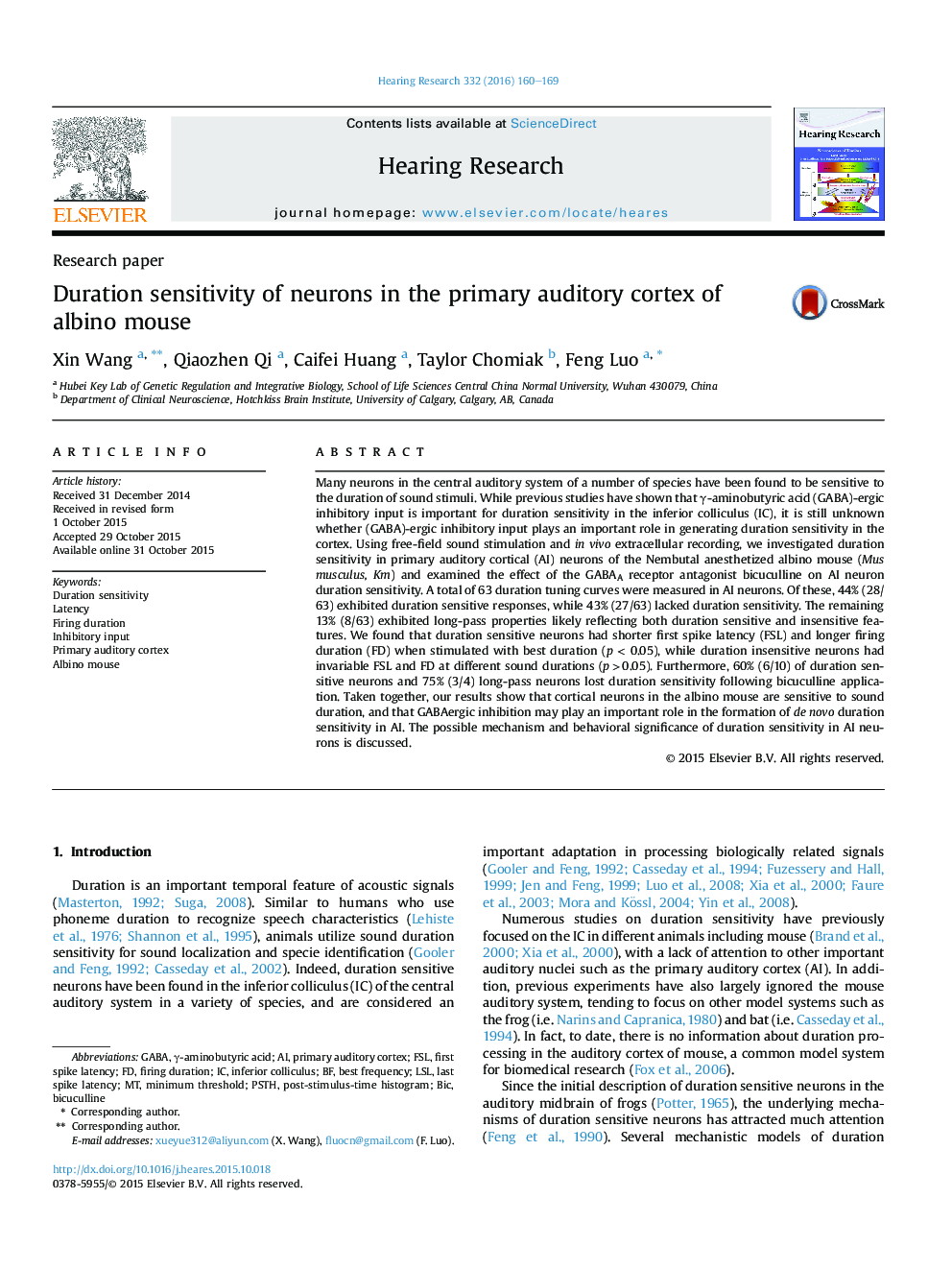| Article ID | Journal | Published Year | Pages | File Type |
|---|---|---|---|---|
| 6287155 | Hearing Research | 2016 | 10 Pages |
Abstract
Many neurons in the central auditory system of a number of species have been found to be sensitive to the duration of sound stimuli. While previous studies have shown that γ-aminobutyric acid (GABA)-ergic inhibitory input is important for duration sensitivity in the inferior colliculus (IC), it is still unknown whether (GABA)-ergic inhibitory input plays an important role in generating duration sensitivity in the cortex. Using free-field sound stimulation and in vivo extracellular recording, we investigated duration sensitivity in primary auditory cortical (AI) neurons of the Nembutal anesthetized albino mouse (Mus musculus, Km) and examined the effect of the GABAA receptor antagonist bicuculline on AI neuron duration sensitivity. A total of 63 duration tuning curves were measured in AI neurons. Of these, 44% (28/63) exhibited duration sensitive responses, while 43% (27/63) lacked duration sensitivity. The remaining 13% (8/63) exhibited long-pass properties likely reflecting both duration sensitive and insensitive features. We found that duration sensitive neurons had shorter first spike latency (FSL) and longer firing duration (FD) when stimulated with best duration (p < 0.05), while duration insensitive neurons had invariable FSL and FD at different sound durations (p > 0.05). Furthermore, 60% (6/10) of duration sensitive neurons and 75% (3/4) long-pass neurons lost duration sensitivity following bicuculline application. Taken together, our results show that cortical neurons in the albino mouse are sensitive to sound duration, and that GABAergic inhibition may play an important role in the formation of de novo duration sensitivity in AI. The possible mechanism and behavioral significance of duration sensitivity in AI neurons is discussed.
Keywords
Related Topics
Life Sciences
Neuroscience
Sensory Systems
Authors
Xin Wang, Qiaozhen Qi, Caifei Huang, Taylor Chomiak, Feng Luo,
